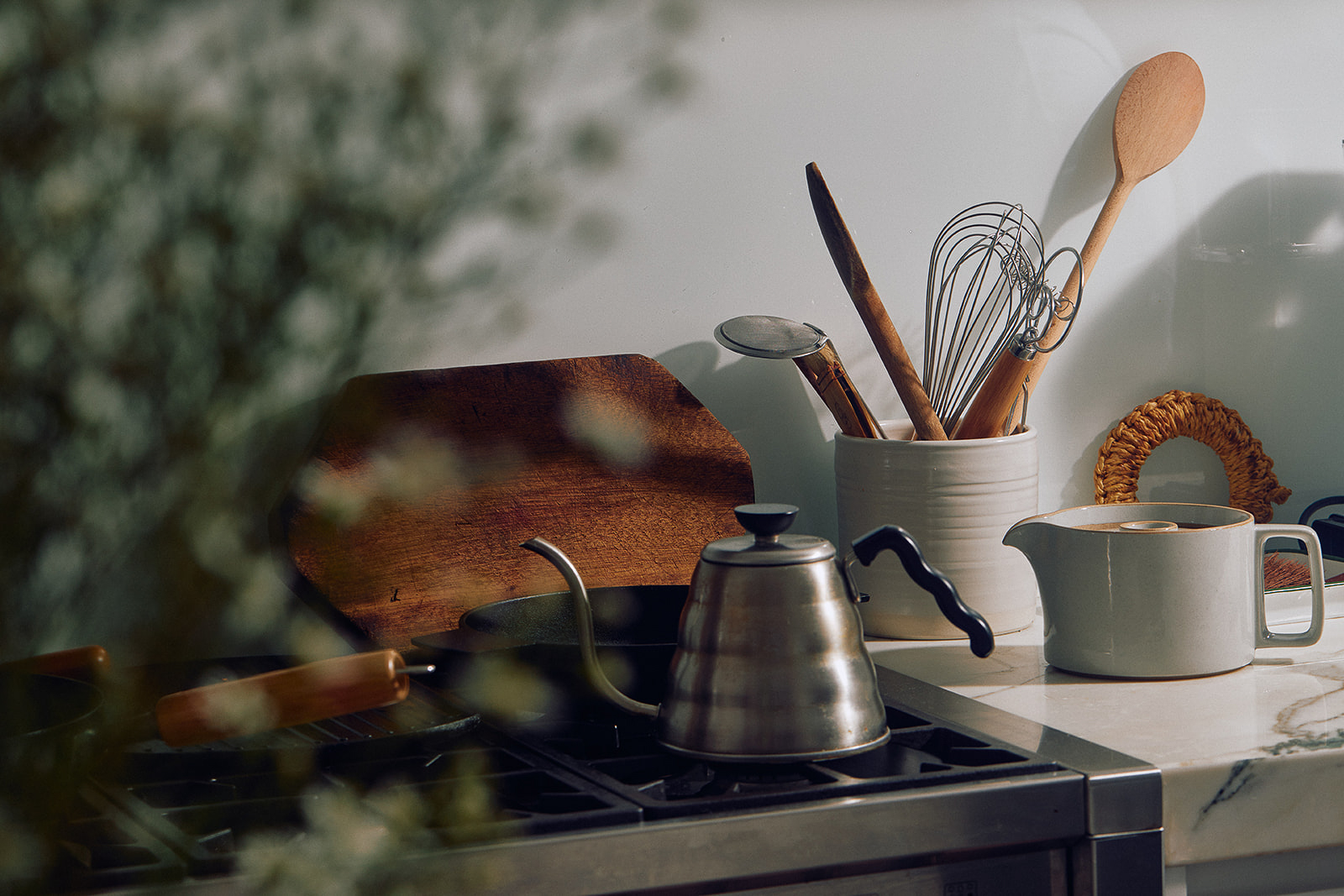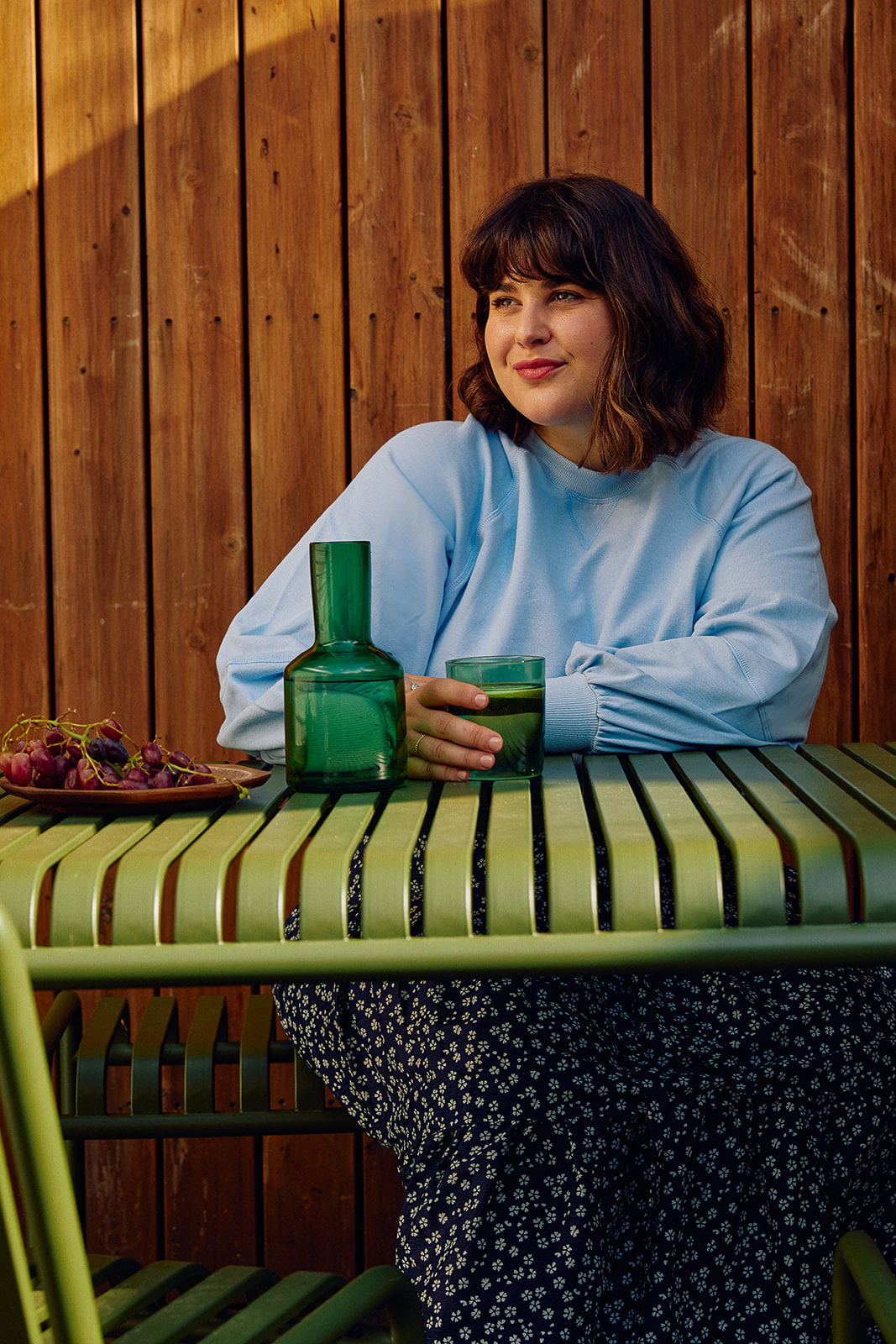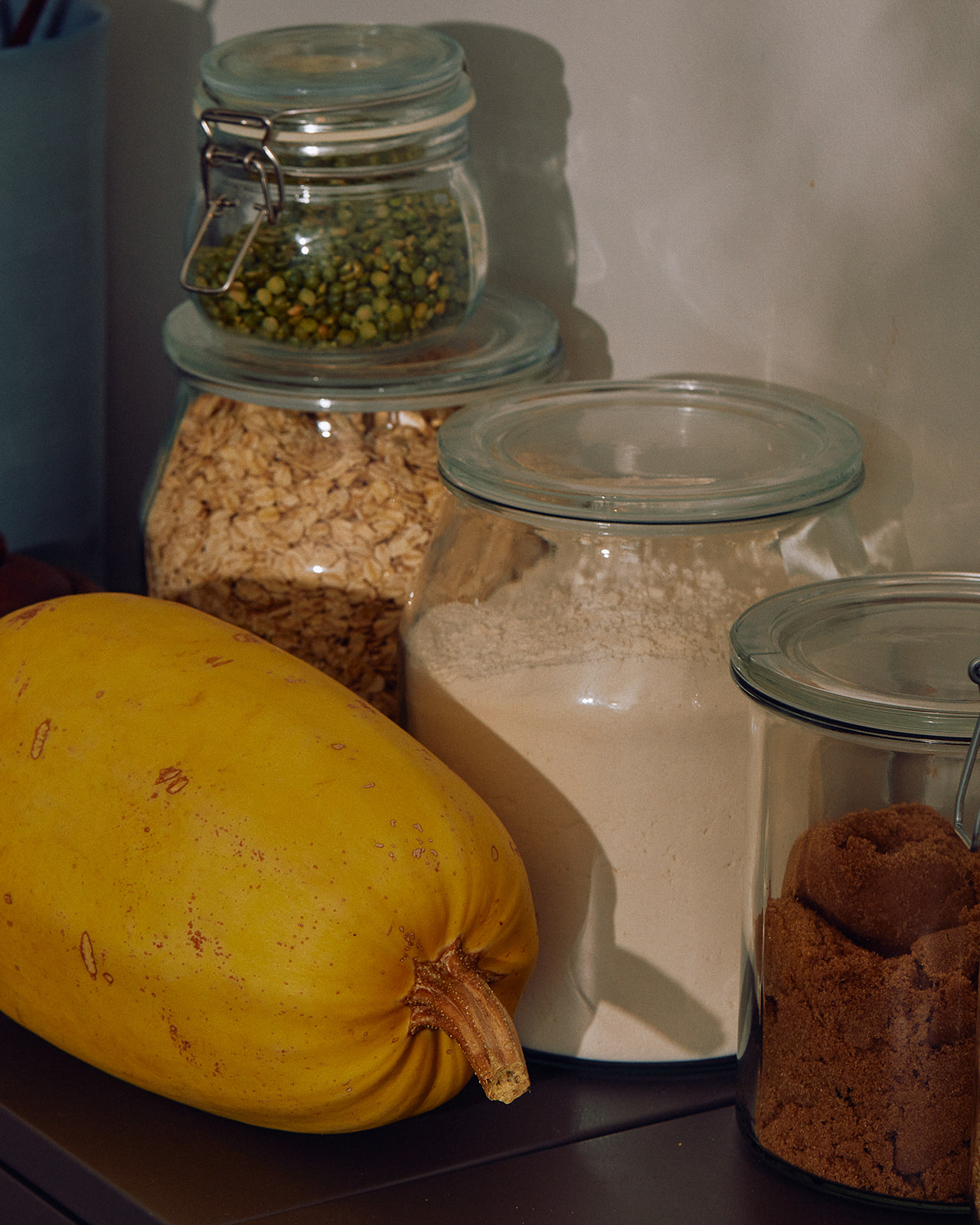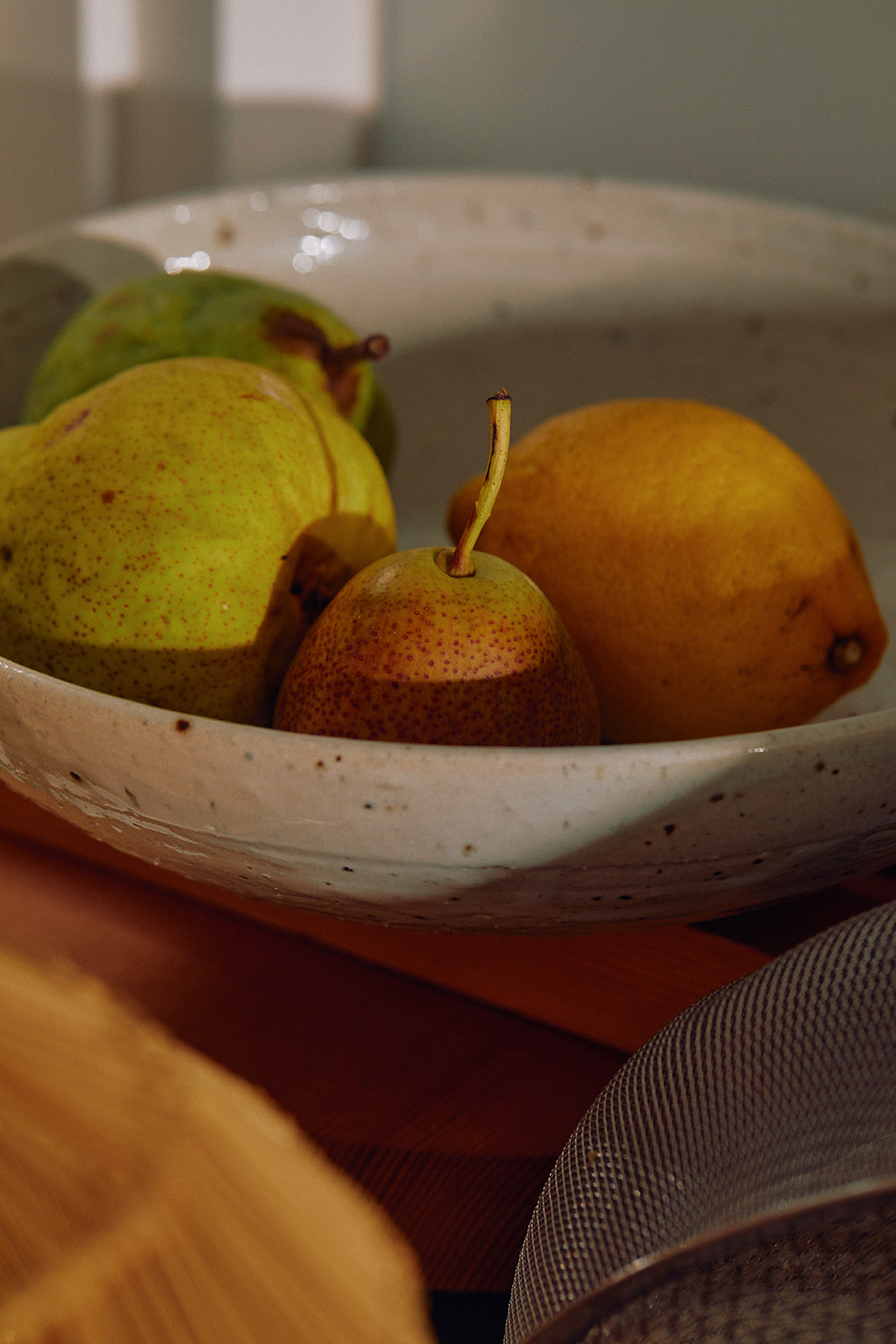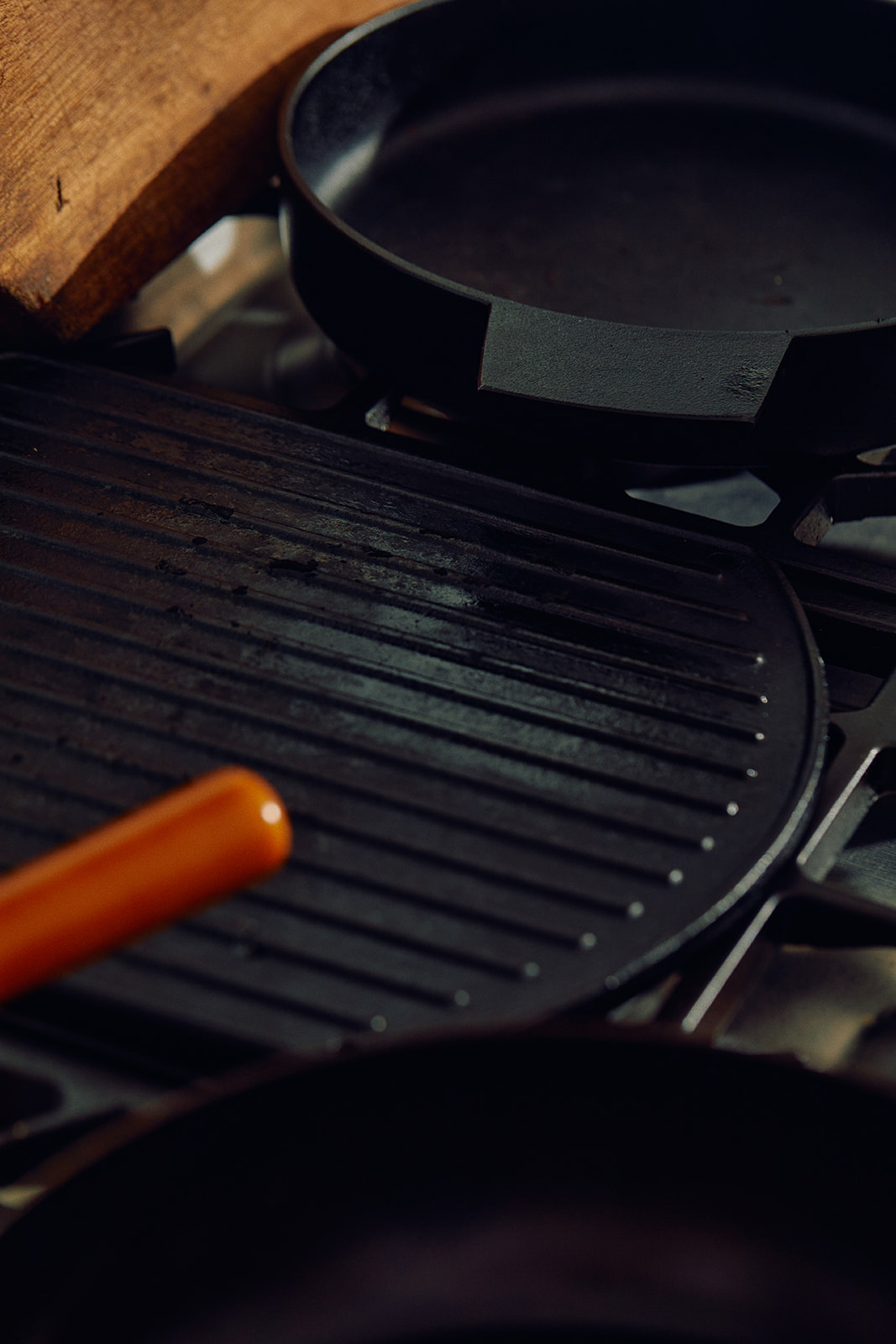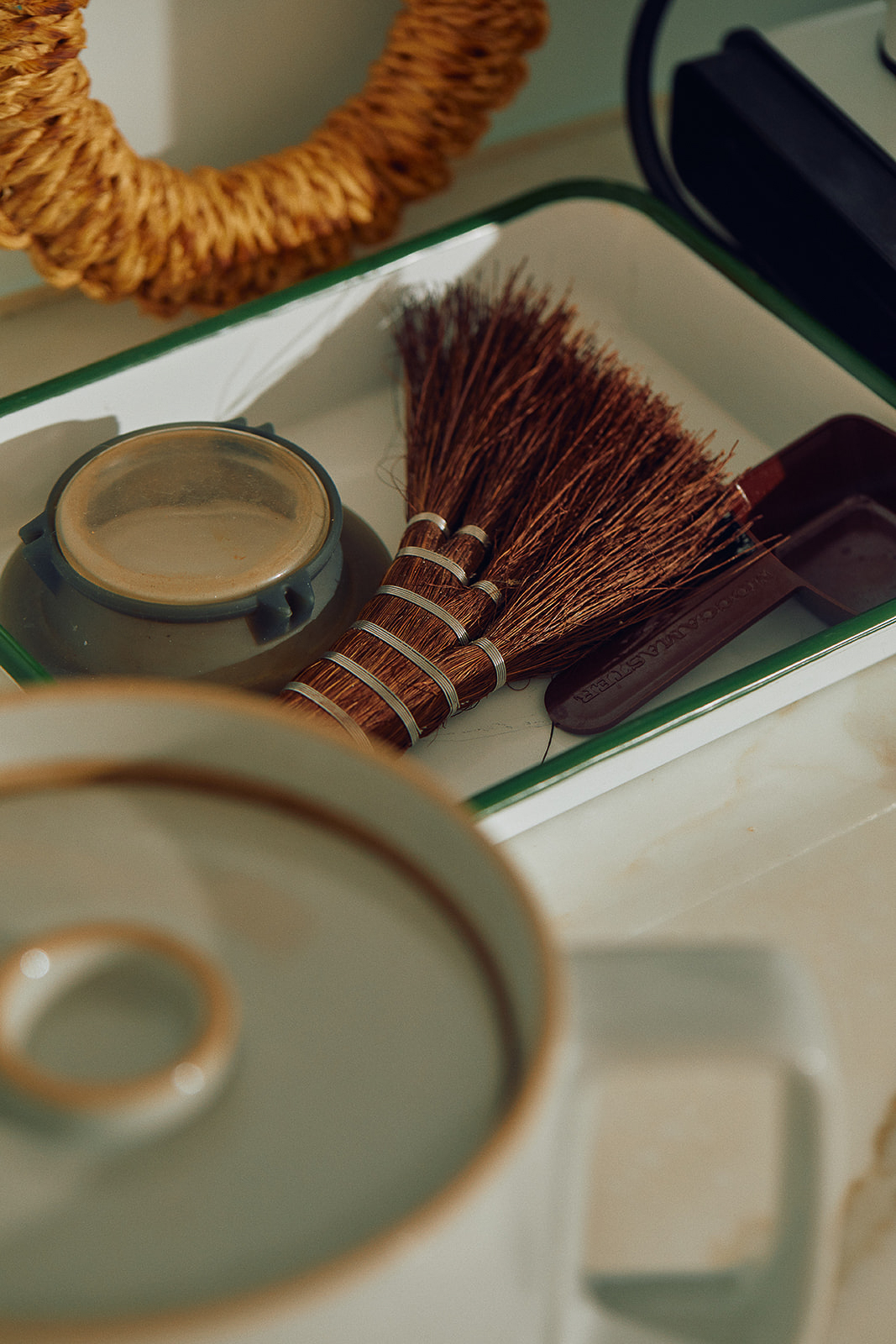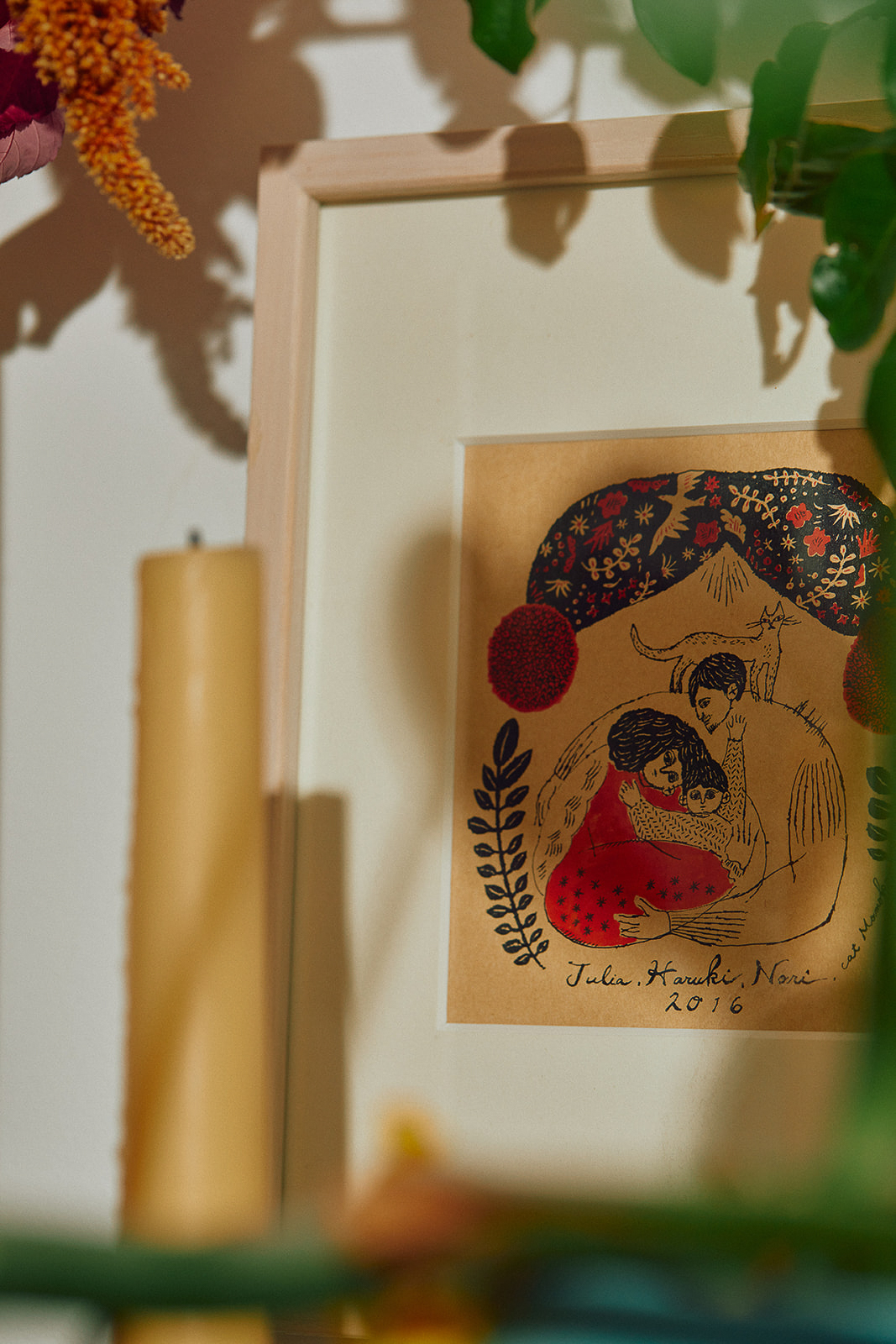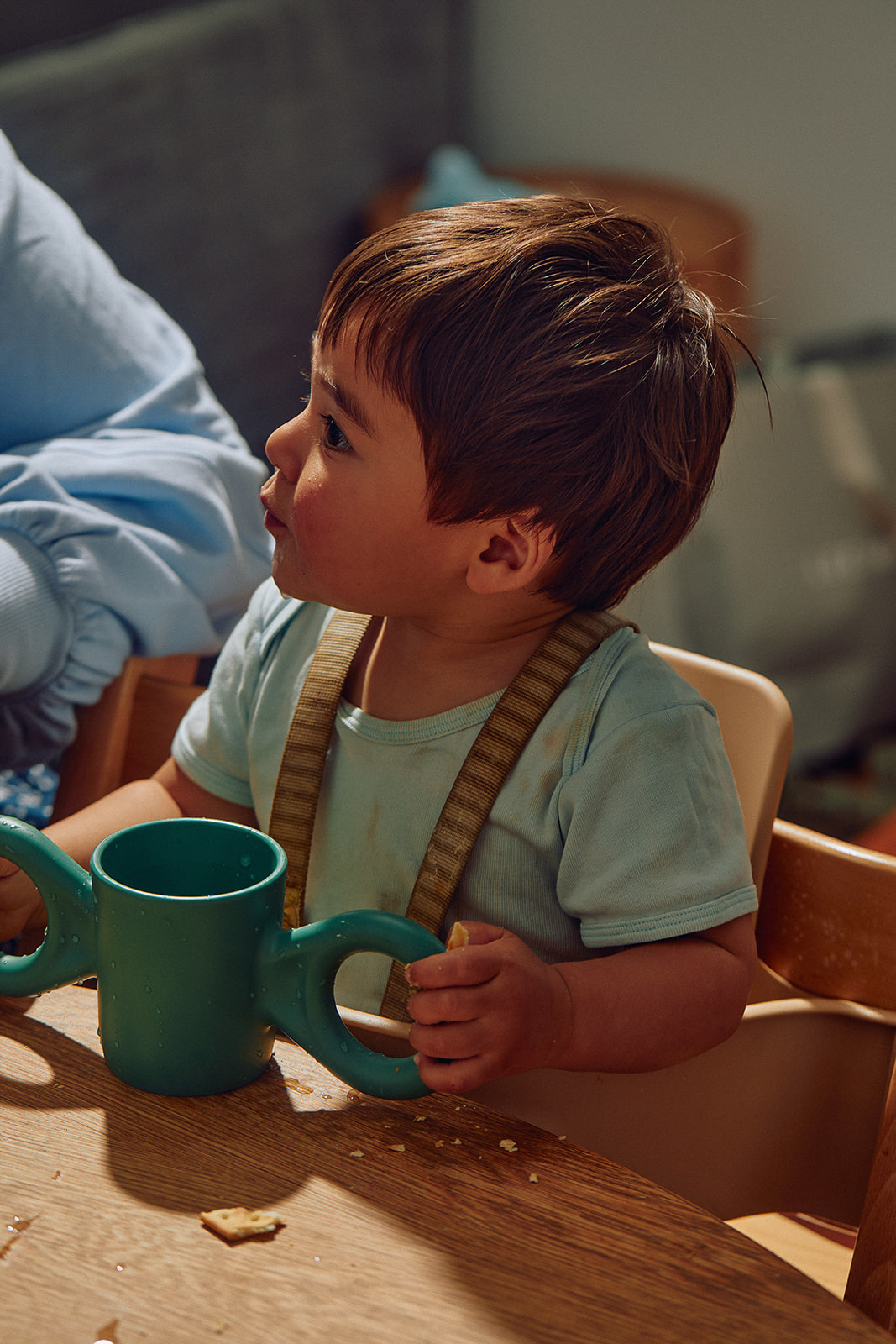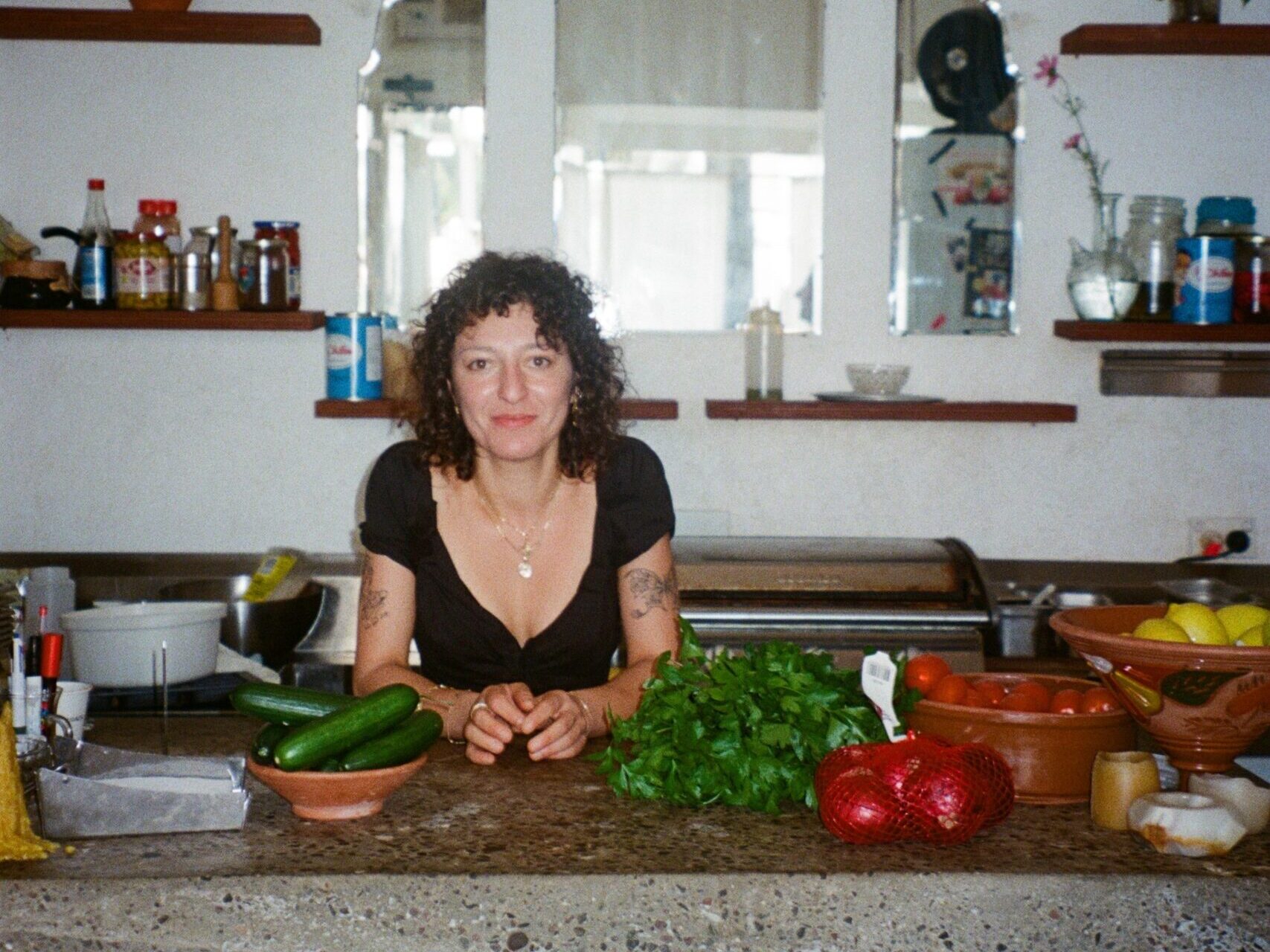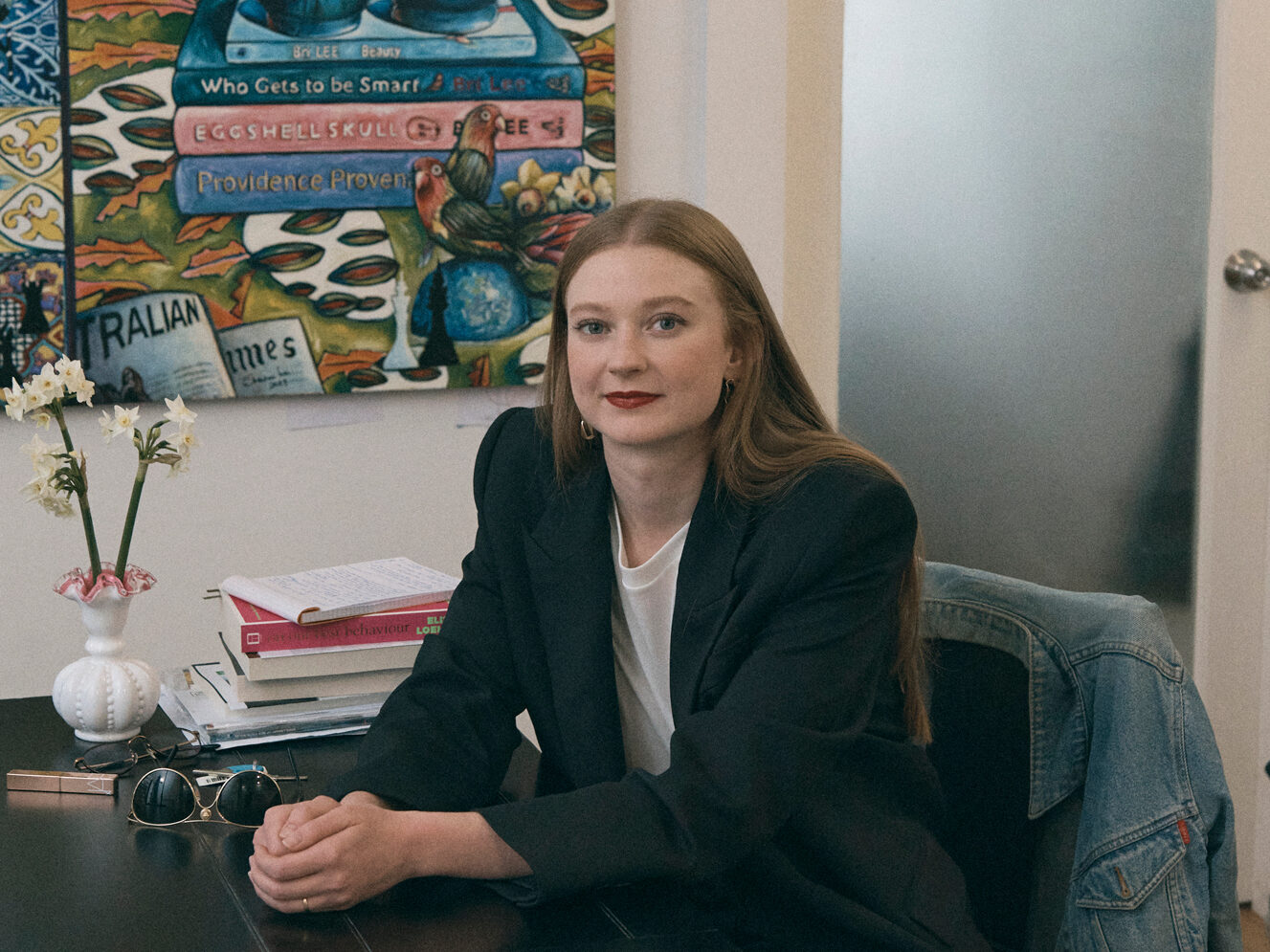Julia Busuttil Nishimura has a sunshine-y temperament. It’s something you pick-up immediately, even on a phone call, as though the cook and author is perpetually smiling through her words. At various points during the discussion you will register that you’re also smiling, a by-product of her warmth and easy conversation. She asks as many questions as you do, laughing all the way, creating an environment that feels like two friends sharing stories from a weekend passed. For brevity, let’s call it ‘The Ostro Effect’ (named for her digital culinary platform and debut cookbook).
The youngest of three siblings, she recalls her childhood spent by the beaches near Willunga, Adelaide, and, like most food-lovers, her recollections often come served according to the menu. “I grew up in a family who loved food, and I have really good memories of going on family holidays to Tasmania together – we would go down to the beach to collect sea water to make ricotta.
Busuttil Nishimura’s father migrated to Australia in the 60s, her mother’s parents moving just after the second world war. “My dad was really involved in the Maltese Club, the cultural centre, so we used to go there every week and play bingo, and watch the old men play Rummikub in the other room, and eat Maltese food,” she says. “[Maltese] culture was a huge part of our childhood. I didn’t really realise that until I went to school and discovered that all these foods that I grew up with were quite different – rabbit, and a lot of ricotta, and dates and spices, and a lot of herbs that you couldn’t find at the supermarket.”
“Home cooks are incredible, and what we do with half-broken ovens and tiny rental kitchens…it’s unrepeatable.”
Julia Busuttil Nishimura
“Home cooks are incredible, and what we do with half-broken ovens and tiny rental kitchens…it’s unrepeatable.”
Julia Busuttil Nishimura
Busuttil Nishimura has long felt a connection to food and cooking, animatedly recounting moments spent in the kitchen with her mother, or preparing dinner parties at just eight-years-old. “When I reflect back, I really did take proactive interest in food,” she meditates. “I remember watching Play School with my mum and they were cooking this dessert, and [I asked] my mum if we could remake it together. I remember she called – there was no email, obviously – so she called ABC and asked to get the recipe sent, and they posted it! It was a typewriter font, I can still picture it, it was written on a typewriter and it was called ‘Apple Snow’, this meringue apple thing. I remember just being so happy that I could recreate that with my mum.”
Her connection to food became her calling card – the trait that set her apart from her siblings (“I’d always say, ‘my brother had stock cars, my sister had singing, and I loved being in the kitchen’,” she laughs). She studied commercial cookery at high school, with sights on a potential career in tourism or hospitality, however an apprehension towards diminishing the joy of her hobby led her to embark upon an arts degree in Melbourne. “I suppose I was worried that if I did cooking as a job I would lose my love for it,” she explains. So, the academia continued – she went on to do her masters in teaching – cooking frequently for her housemates and visiting the local markets all the while. And then something shifted.
“I travelled to Italy quite a few times in my studies, but it wasn’t until my final year – so I would’ve been probably 21 at least, or 22 – and I lived in a Tuscan countryside,” she reminiscences. “I worked as a nanny for a family, and I felt like I’d come home. I felt like that attitude to life and to food and to family resonated with me from my childhood … like I’d come full circle.”
The ability to tell a story compellingly is a gift – you are essentially asking people to listen to you retell a dream, and demand that they join you in that realm. But Busuttil Nishimura’s memories are the kind you truly wish you were in yourself. “It was funny, it was strange,” she laughs (back in Italy, still). “I’d been away from that kind of family unit – I was the youngest, and my sister and my brother had left home, so it was just me and my mum for ages. And I’d moved away from that kind of big, family setting for so long. And then, there as just so much care put into shopping for ingredients and cooking seasonally [over there], and picking things from the vegetable garden. It just felt like this rebirth.”
From anyone else, the description of “this rebirth” might sound artificial. From Busuttil Nishimura, it’s joyful (see: ‘The Ostro Effect’). “Not to be dramatic,” she laughs, “but it really did feel like this kind of uplifting experience where I was surrounded by the value system that I’d had in my childhood.” She soon started documenting recipes, before launching her own blog filled with home-cooked favourites – ‘home-cooked’ being the operative phrase. “The best food I’ve ever eaten, around the world, has been in people’s homes,” she says, recalling meals eaten with friends in Italy, Japan (where her husband, chef Niro Nishimura, hails from) and Malta. “I feel like home cooks are so incredible, and what we do with half-broken ovens and tiny rental kitchens…it’s unrepeatable.”
“There is something satisfying about turning flour and water, or flour and eggs, into something so beautiful, and something so special.”
Julia Busuttil Nishimura
“There is something satisfying about turning flour and water, or flour and eggs, into something so beautiful, and something so special.”
Julia Busuttil Nishimura
Busuttil Nishimura evokes a sense of ephemerality when describing her craft, along with a strong desire to be a guest at one of her dinner parties – you get the impression that mealtime and recipe testing in the family household (Busuttil Nishimura has two young children: Yukito 1, and Haruki, 5) is one of the most highly-anticipated moments of the day. Where licking the mixing spoon is not only permitted, it’s encouraged. “[Nori]’s a chef, so he’s a really good critique. Especially the Japanese recipes, they definitely have to go through him first. And then my sister’s always around, my mum – I feel like my mum really relishes in the feedback realm,” she laughs. “In our old house, we shared an alleyway with several other houses…We had quite a few really close neighbours, and so I’d send Haruki with tinfoil-wrapped cakes and things for them to try, and they’d give me feedback, which is nice.”
“When I get called a chef, I am always quick to correct and say, ‘I’m a home cook’. Because I’m proud. I’m proudly a home cook. And I think that’s important.”
Julia Busuttil Nishimura
“When I get called a chef, I am always quick to correct and say, ‘I’m a home cook’. Because I’m proud. I’m proudly a home cook. And I think that’s important.”
Julia Busuttil Nishimura
Inspired by this simplistic, connective philosophy toward food, and fuelled by the popularity of her digital platform, Busuttil Nishimura decided to put pen to paper; releasing her first cookbook, Ostro: The Pleasure That Comes from Slowing Down and Cooking with Simple Ingredients, in 2017. “Over a six-month period, I kind of brainstormed and tested and collated recipes, or ideas for recipes.” The book was an immediate success, launching her even further into the public sphere with that trademark warmth and relatability, and was subsequently listed in Gourmet Traveller’s Best Food Books line-up and shortlisted for the 2018 ABIA Illustrated Book of the Year award, among other accolades.
Ostro also received positive feedback from a number of her industry idols, too, namely Jamie Oliver and Nigella Lawson, who both provided glowing reviews. “I’m so grateful, because they don’t have to do that, it’s no gain for them to do that,” she says. “They gave me those quotes back in 2017, when I would say I was a complete nobody.” Ostro is slated for republication this April, with Lawson’s quote now appearing on the book’s cover, and Oliver’s printed on the back.
"I really do try and appreciate the simplicity of the small moments.”
Julia Busuttil Nishimura
"I really do try and appreciate the simplicity of the small moments.”
Julia Busuttil Nishimura
Her second book, A Year of Simple Family Food, launched in September last year (fortuitous timing considering 2020’s status as the year of lockdowns) and centres around seasonal cooking. “I cook seasonally anyway, and I’m always talking about it in my books, so we thought it would be great to categorise the recipes into seasons as well.” As for future publications? “I’d love to write a cookbook on Maltese food. And I’d love to write a more vegetable-focused book down the track,” she lists. No matter the theme, you can safely bet her work will deliver you right back to where it all began: family, simplicity and a generosity of spirit.
Through her work and life, Busuttil Nishimura has made accessible an attitude we all likely harmonise with, yet haven’t necessarily vocalised: no matter how slick, delicious or awe-inspiring a restaurant experience may be, our fondest food memories are often made around our own dining room tables. “When I get called a chef, I am always quick to correct and say, ‘I’m a home cook’,” she says. “Because I’m proud. I’m proudly a home cook. And I think that’s important.”
It’s a philosophy that transcends all aspects of her life, from her career to those small, stolen moments throughout the day. “In the business of daily life with two kids and all the pressure, it’s easy to get caught up in the hustle and bustle.”
“I really do try and appreciate the simplicity of the small moments, like the morning coffee, and whether it’s a well-made outfit or something,” she says. “I like making things like dough, making things with my hands. I don’t want to laugh, but there is something so satisfying about turning something like flour and water, or flour and eggs, into something so beautiful, and something so special.”
Words: Victoria Pearson
Photography: Annika Kafcaloudis


